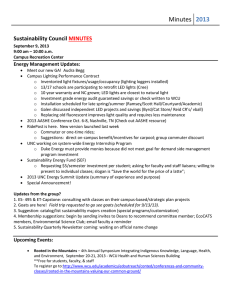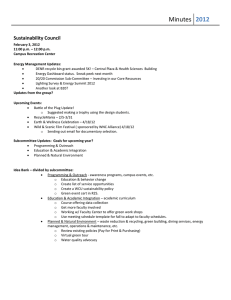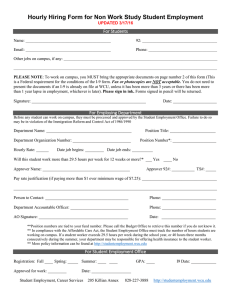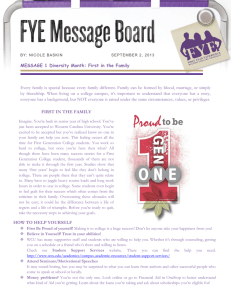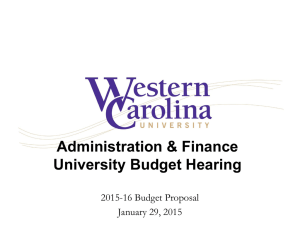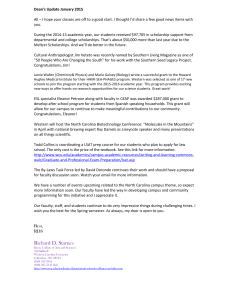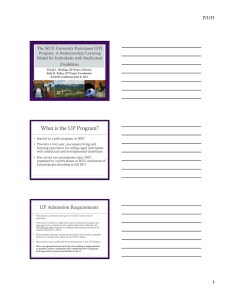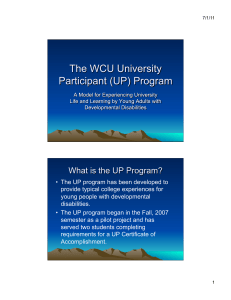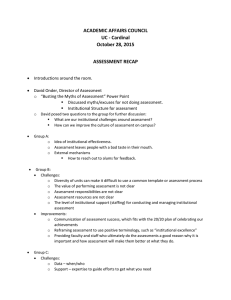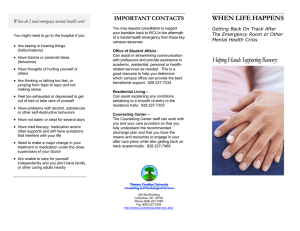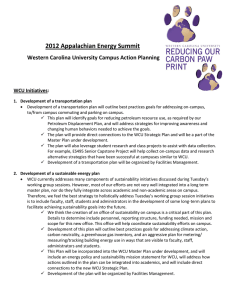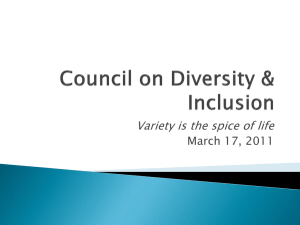SUSTAIN! Campus as Living Learning Lab Imagine a shared
advertisement
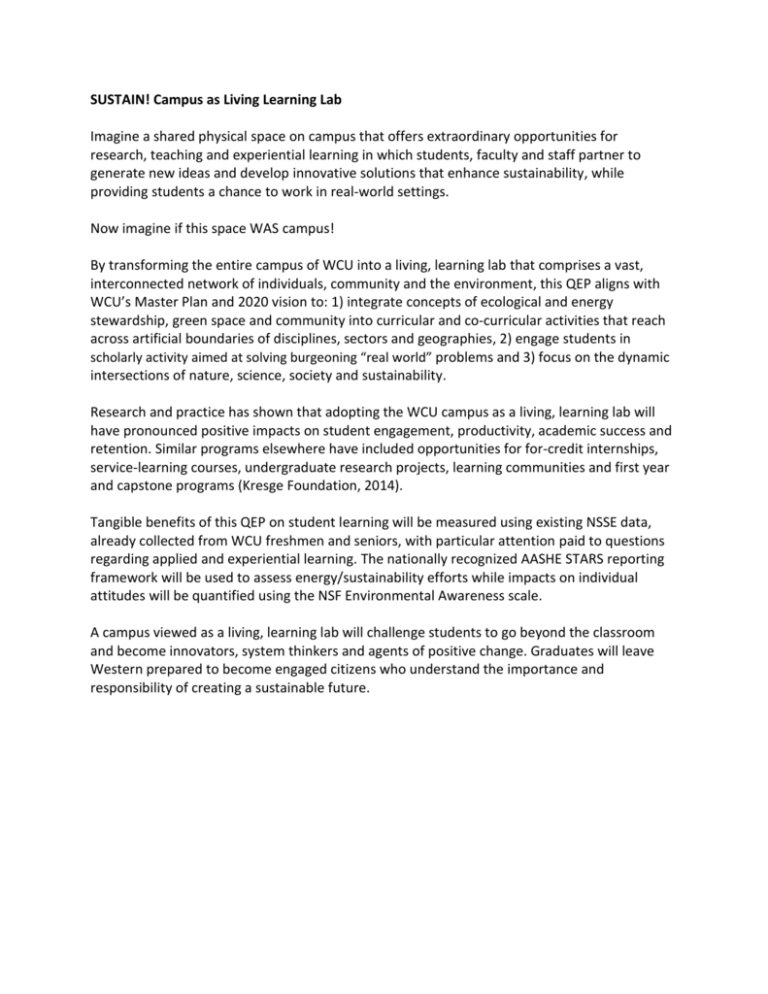
SUSTAIN! Campus as Living Learning Lab Imagine a shared physical space on campus that offers extraordinary opportunities for research, teaching and experiential learning in which students, faculty and staff partner to generate new ideas and develop innovative solutions that enhance sustainability, while providing students a chance to work in real-world settings. Now imagine if this space WAS campus! By transforming the entire campus of WCU into a living, learning lab that comprises a vast, interconnected network of individuals, community and the environment, this QEP aligns with WCU’s Master Plan and 2020 vision to: 1) integrate concepts of ecological and energy stewardship, green space and community into curricular and co-curricular activities that reach across artificial boundaries of disciplines, sectors and geographies, 2) engage students in scholarly activity aimed at solving burgeoning “real world” problems and 3) focus on the dynamic intersections of nature, science, society and sustainability. Research and practice has shown that adopting the WCU campus as a living, learning lab will have pronounced positive impacts on student engagement, productivity, academic success and retention. Similar programs elsewhere have included opportunities for for-credit internships, service-learning courses, undergraduate research projects, learning communities and first year and capstone programs (Kresge Foundation, 2014). Tangible benefits of this QEP on student learning will be measured using existing NSSE data, already collected from WCU freshmen and seniors, with particular attention paid to questions regarding applied and experiential learning. The nationally recognized AASHE STARS reporting framework will be used to assess energy/sustainability efforts while impacts on individual attitudes will be quantified using the NSF Environmental Awareness scale. A campus viewed as a living, learning lab will challenge students to go beyond the classroom and become innovators, system thinkers and agents of positive change. Graduates will leave Western prepared to become engaged citizens who understand the importance and responsibility of creating a sustainable future.
